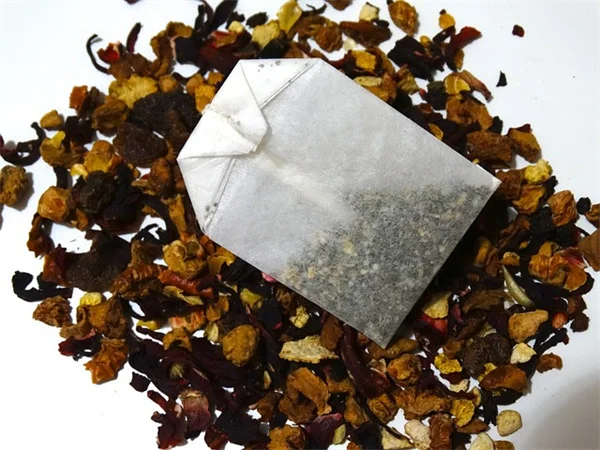Voquezna for GERD: FDA Approves New Heartburn Treatment Alternative to PPIs
Advertisement
Looking for relief from that burning GERD discomfort? The FDA just approved Voquezna (vonoprazan) as a new daily treatment for non-erosive GERD-related heartburn in adults - and here's why this matters for you. Unlike traditional PPIs like Prilosec or Nexium, Voquezna works as a potassium-competitive acid blocker (PCAB), offering faster relief that lasts longer. Clinical trials show it delivers 45% more heartburn-free days compared to placebo, with most patients feeling better within 24 hours. While it shares some side effects with PPIs (think nausea or abdominal pain), this first-in-class medication could be a game-changer for the 45 million Americans struggling with GERD symptoms. Let's break down what makes Voquezna different and who might benefit most from this new option.
E.g. :5 Shocking Reasons to Never Use Tap Water in Your CPAP Machine
- 1、Finally, A New Weapon Against Heartburn!
- 2、Does This Stuff Actually Work?
- 3、How Does It Stack Up Against the Old Guard?
- 4、Who Should Consider Voquezna?
- 5、The Bottom Line on Voquezna
- 6、The Science Behind Acid Control
- 7、Lifestyle Factors You Might Not Know About
- 8、Natural Remedies Worth Trying
- 9、When to See a Doctor
- 10、Looking to the Future
- 11、FAQs
Finally, A New Weapon Against Heartburn!
Let me tell you about this exciting new FDA approval that's making waves in the digestive health world. The FDA just gave the green light to vonoprazan (Voquezna) as a daily treatment for heartburn caused by non-erosive GERD. And let's be honest - who hasn't experienced that awful burning sensation after eating their favorite spicy foods?
What Exactly Is GERD?
Picture this: You're enjoying a delicious meal when suddenly - bam! - that familiar fiery feeling hits your chest. That's GERD in action, my friend. It happens when stomach acid decides to take a little vacation back up your esophagus.
Now here's the kicker - with non-erosive GERD (or NERD, which honestly sounds like something a teenager would call you), your esophagus isn't actually getting damaged by the acid. But don't let that fool you - the heartburn is very real for the 45 million American adults dealing with this condition.
Meet Voquezna - The New Kid on the Block
So what makes Voquezna special? Well, it's not your grandma's antacid, that's for sure. This medication belongs to a fancy new class called potassium-competitive acid blockers (PCABs). Think of it like a bouncer at a club - it blocks acid production right at the source.
Here's something interesting - Voquezna actually wears multiple hats. It's also approved for:
- Erosive GERD (where acid does damage your esophagus)
- H. pylori infections (when used with antibiotics)
Does This Stuff Actually Work?
 Photos provided by pixabay
Photos provided by pixabay
The Proof Is in the Pudding
Let's talk numbers, shall we? In a clinical trial with over 700 adults:
| Treatment | Heartburn-Free Days | 24-Hour Relief |
|---|---|---|
| Voquezna | 45% | 48% |
| Placebo | 28% | 17% |
Not too shabby, right? Dr. Howden from the University of Tennessee put it perfectly: "This novel treatment can quickly and significantly reduce heartburn for many adult patients."
But What About Side Effects?
Now, I know what you're thinking - "What's the catch?" Like any medication, Voquezna comes with potential side effects:
- Abdominal pain (because irony is a cruel mistress)
- Constipation or diarrhea (pick your poison)
- Nausea (the ultimate betrayal from your stomach)
- Urinary tract infections (because why not?)
Some folks in longer trials also reported cold-like symptoms. But let's be real - these are pretty standard for most medications.
How Does It Stack Up Against the Old Guard?
PPIs vs. Voquezna: The Showdown
You're probably familiar with PPIs like Prilosec or Nexium - they've been the go-to for years. But here's the million-dollar question: Is Voquezna better?
The answer? It depends. Voquezna works differently but achieves similar results. The big advantage? It kicks in faster and lasts longer. Imagine being able to take medication before your spicy food adventure instead of suffering afterward!
 Photos provided by pixabay
Photos provided by pixabay
The Proof Is in the Pudding
Now, PPIs have gotten some bad press about potential long-term risks like bone fractures or nutrient deficiencies. But here's the thing - Voquezna is so new we don't have decades of data yet.
Dr. Bedford makes a good point though: "Vonoprazan has been around for 5-10 years for other uses, so we've got some safety data." Still, Dr. Farhadi advises caution since it's new to the GERD scene.
Who Should Consider Voquezna?
Is This the Right Choice for You?
If you're one of those people who pops antacids like candy, this might be worth discussing with your doctor. Especially if:
- PPIs haven't worked well for you
- You want faster relief
- You'd prefer taking medication only when needed
As Dr. Bedford puts it: "You might want to take one before a big dinner to prevent discomfort." Now that's what I call proactive medicine!
Real Talk About Medication Use
Here's something important to remember - no medication is perfect. But for millions suffering from GERD symptoms, having more options is always a good thing. Just make sure to:
- Talk to your doctor about your specific situation
- Read the full prescribing information
- Report any unusual side effects
The Bottom Line on Voquezna
The FDA's approval of Voquezna gives us another tool to fight that awful heartburn feeling. It works differently than traditional PPIs, acts faster, and showed good results in clinical trials.
Is it a miracle cure? Probably not. But is it an exciting new option for GERD sufferers? Absolutely! Just remember - your doctor is the best person to help you decide if it's right for you.
Now if you'll excuse me, I think I'll go enjoy some spicy wings... with my Voquezna close at hand, of course!
The Science Behind Acid Control
 Photos provided by pixabay
Photos provided by pixabay
The Proof Is in the Pudding
You know that burning feeling when heartburn strikes? Let me explain what's really happening inside your stomach. Your stomach lining contains millions of tiny proton pumps that work like little acid factories. When they get activated, they pump hydrogen ions (that's the "H" in stomach acid's HCl) into your stomach.
Here's a fun fact - your stomach produces about 2-3 liters of gastric juice every single day! That's enough to fill a large soda bottle. No wonder we sometimes feel that acid creeping up when things go wrong.
The Evolution of Acid Control Medications
Remember when the only options were chalky antacids that tasted like minty dirt? We've come a long way since then! The medication timeline looks something like this:
| Era | Medication Type | How They Work |
|---|---|---|
| 1970s | Antacids | Neutralize existing acid |
| 1980s | H2 Blockers | Reduce acid production |
| 1990s | PPIs | Block proton pumps |
| 2020s | PCABs (Voquezna) | New blocking mechanism |
Isn't it amazing how medical science keeps advancing? I remember my grandma swearing by baking soda for heartburn - thank goodness we have better options now!
Lifestyle Factors You Might Not Know About
Surprising Heartburn Triggers
We all know spicy foods and coffee can cause trouble, but here are some unexpected culprits:
Did you know that chewing gum can actually trigger heartburn? The constant swallowing brings air into your stomach, which can push acid upward. And that healthy salad you're eating? If it has onions or tomatoes, you might be in for trouble later.
Even your sleep position matters! Sleeping on your left side actually helps keep acid down because of how your stomach curves. Who would've thought?
The Stress Connection
Here's something fascinating - your brain and gut are in constant communication through what scientists call the gut-brain axis. When you're stressed, your brain sends signals that can increase acid production.
I'll never forget the time I had a huge presentation at work and ate a completely harmless sandwich for lunch. Next thing I knew, I was reaching for the antacids. Stress had turned my stomach into a volcano!
Natural Remedies Worth Trying
Kitchen Cabinet Solutions
Before reaching for medication, you might want to try some natural approaches. Aloe vera juice (the kind you can drink) can soothe irritated esophagus tissue. And that old wives' tale about milk helping? It's partially true - the calcium can neutralize acid, but the fat content might make things worse later.
Here's my personal favorite - ginger tea. Ginger has natural anti-inflammatory properties that can calm your stomach. Plus, it's delicious! Just don't make it too strong, or you might swap one problem for another.
The Power of Mindful Eating
Ever notice how heartburn often happens when you're eating on the go? There's science behind that! When you eat quickly, you swallow more air and don't chew food thoroughly, making digestion harder.
Try this experiment: For one week, eat your meals sitting down without distractions. Chew each bite 20 times (yes, count them!). You might be surprised how much difference it makes. My cousin swears by this method - she went from daily heartburn to only needing occasional relief.
When to See a Doctor
Warning Signs You Shouldn't Ignore
We all get heartburn sometimes, but how do you know when it's serious? If you're experiencing any of these, it's time to make an appointment:
- Difficulty swallowing (like food gets stuck)
- Unexplained weight loss
- Persistent vomiting
- Black or bloody stools
I made the mistake of ignoring symptoms for months once. Turns out I had developed a small ulcer. Lesson learned - your body knows when something's wrong!
The Importance of Proper Diagnosis
Did you know there are actually several conditions that can feel like heartburn but aren't GERD? Gallbladder issues, heart problems, and even some types of cancer can mimic those burning sensations.
That's why doctors might recommend tests like endoscopies or pH monitoring. It's not just about being thorough - getting the right diagnosis means getting the right treatment. My neighbor kept treating what he thought was heartburn for years before discovering it was actually a hiatal hernia!
Looking to the Future
What's Next in GERD Treatment?
The approval of Voquezna is exciting, but researchers are already working on even more advanced treatments. Some scientists are studying mucosal protectants that could coat and heal damaged esophagus tissue. Others are looking at nerve-targeting medications that might prevent the pain signals from reaching your brain.
And get this - there's even research into smart pills that could monitor your stomach acid levels and send data to your phone! Imagine getting an alert before heartburn even starts. The future looks bright for GERD sufferers.
The Bigger Picture of Digestive Health
Here's something to chew on (pun intended) - our understanding of gut health has exploded in recent years. We now know that your gut microbiome (those trillions of bacteria living in your digestive system) plays a huge role in everything from immunity to mental health.
Could balancing your gut bacteria help with GERD? Some preliminary studies suggest it might. I've started eating more probiotic foods like yogurt and sauerkraut, and while it's not a cure, I've definitely noticed fewer flare-ups. Food for thought, right?
E.g. :FDA Approves Erosive GERD Therapy Vonoprazan
FAQs
Q: How does Voquezna work differently from traditional GERD medications?
A: Here's the cool science behind Voquezna - while PPIs like Nexium work by permanently blocking acid pumps in your stomach (they need 3-4 days to reach full effect), Voquezna acts as a potassium-competitive acid blocker. This means it starts working within hours by temporarily but powerfully blocking acid production. We've seen in studies that most patients get relief within one day, compared to several days with PPIs. Another key difference? Voquezna maintains its effectiveness regardless of when you take it with meals, while PPIs work best when taken 30 minutes before eating. This makes Voquezna more convenient for people with irregular schedules.
Q: What were the results of the Voquezna clinical trials for GERD?
A: The phase 3 trial that convinced the FDA to approve Voquezna was pretty impressive. Over 700 adults with frequent heartburn (at least 4 days weekly) participated, with some taking Voquezna 10mg, others 20mg, and some a placebo. Here's what we learned: Voquezna users experienced 45% heartburn-free days versus just 28% for placebo takers. Even better? Nearly half (48%) of Voquezna patients got complete 24-hour relief compared to only 17% in the placebo group. These results held up whether patients took the 10mg or 20mg dose, though your doctor will determine which strength is right for your specific needs.
Q: What are the most common side effects of Voquezna?
A: Like any medication, Voquezna comes with potential side effects, though most were mild in trials. The most frequently reported issues included abdominal pain (that ironic stomach ache), constipation or diarrhea (your gut's mood swings), nausea (your stomach protesting the help), and urinary tract infections. In longer 20-week studies, some patients also reported cold-like symptoms including upper respiratory infections and sinusitis. Importantly, because Voquezna reduces stomach acid like PPIs do, it carries similar long-term cautions about potential nutrient absorption issues - though we need more long-term data to be certain. Always discuss your full medical history with your doctor before starting any new medication.
Q: Can I take Voquezna only when I need it, rather than daily?
A: This is where Voquezna gets really interesting! Unlike PPIs that typically require daily use for full effect, Voquezna's rapid action makes it potentially suitable for as-needed use. As Dr. Bedford mentioned, "You might want to take one before a big dinner to prevent discomfort." However, the current FDA approval is for daily use in non-erosive GERD. Some doctors might prescribe it situationally for occasional heartburn, but we need more real-world experience to know how well this approach works. If you're considering Voquezna for on-demand use, have an honest conversation with your gastroenterologist about your symptoms and lifestyle needs.
Q: Who is the ideal candidate for Voquezna treatment?
A: Voquezna could be especially helpful if you're in one of these situations: First, if traditional PPIs haven't fully controlled your GERD symptoms (about 30% of patients don't respond well to PPIs). Second, if you need faster relief than PPIs provide - maybe you have important events coming up and can't wait days for medication to work. Third, if you're concerned about potential long-term PPI side effects (though remember, Voquezna is new and we're still learning about its long-term profile). Finally, if you struggle with medication timing - Voquezna's less finicky about when you take it compared to PPIs. As always, your doctor can help determine if you're a good candidate based on your specific health history.







